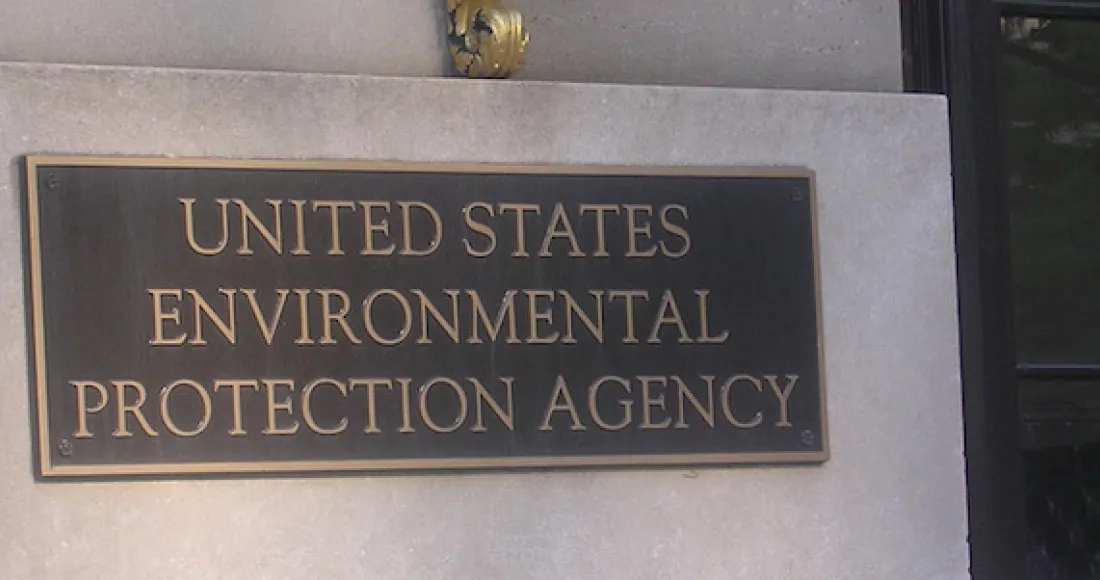
After President Trump announced travel restrictions on citizens of seven Muslim-majority countries, at least 1,000 federal employees used official channels to voice their disapproval.
The travel restrictions have come under intense scrutiny, because many judges and legal experts doubt its validity under the U.S. Constitution. It was perfectly legal for those State Department employees to express their concerns.
There was something different about their dissent this time, however. After they spoke up, Press Secretary Sean Spicer publicly condemned them for failing to support the Executive Order, and suggested that they leave their jobs.
It is actually part of federal employees’ jobs to speak up if they have witnessed their employers committing unethical or illegal acts. The Whistleblower Protection Enhancement Act, passed in 2012, makes it illegal for federal employees to be fired, demoted, harassed, or pressured into quitting after refusing to participate in the employer’s wrongdoing.
Spicer’s retaliatory speech is hardly an anomaly, though, and it has led federal employees to take extra precautions when exercising their rights.
Why So Much Concern?
Since the new administration took office on January 20th, federal employees and legislators across party lines have expressed growing concern about whistleblower rights within the government.
Generally, America has some of the strongest whistleblower laws in the world. Even so, federal employees who blow the whistle have often experienced a different fate than private sector employees protected by the False Claims Act or the Dodd-Frank whistleblower provisions.
Stricter non-disclosure rules often apply to employees whose jobs involve sensitive national security information, as was the case with Chelsea Manning and Edward Snowden.
Full employees that are not disclosing such sensitive information, however, are legally protected under the WPEA. Any non-disclosure agreement issued to employees is required to feature language that excludes whistleblowing.
LEARN ABOUT WHISTLEBLOWER RIGHTS
Shortly after the start of the new administration, the acting secretary of the Department of Health and Human Services forbade anyone within the HHS from communicating with elected officials unless previously authorized to do so. That prevents HHS employees from raising concerns of illegal activity within their agency to members of Congress.
In addition, the Trump administration ordered the Environmental Protection Agency (EPA) to cease all communications with the public or the press. The EPA gag order was compounded by the administration’s request for the names of employees that supported climate change research and policies.
The federal webpage for Wells Fargo whistleblowers was even taken down in January, which is unfortunate given the scope of the bank’s financial crimes.
During a House Oversight and Government Reform hearing in February, officials discussed how these political actions may impact the enforcement of the WPEA. Many federal employees have started using encrypted apps to report misconduct, because they doubt the integrity of the official channels.
This is the type of pressure that leads well-meaning whistleblowers to go to the media and the public. When the laws designed to protect them fail to do so, they may feel they have no other options.
That’s why bipartisan legislators are stepping up to protect government whistleblowers.
The Follow the Rules Act
On January 24th, Congress introduced H.R. 657, also known as the Follow the Rules Act. This proposed amendment would strengthen orders to break the len the whistleblower protections in the WPEA. The current law isn’t as specific as it could be about preventing employer retaliation in the federal government.
The Follow the Rules Act was introduced by Democrats and Republicans in Congress, showing that whistleblower rights are important regardless of one’s politics. 12 bipartisan senators also sent recommendations to the President, reminding his administration that whistleblowers can “powerful allies” to the government. The legislators, including whistleblower advocate Charles Grassley, also stressed that due to the vast scope of the government and all of its employees, whistleblowers are essential in rooting out wrongdoing.
Congressman Elijah Cummings wrote a separate letter urging federal employees to report any misconduct to him. He expressed concern about the non-disclosure policies being implemented throughout government agencies, and reiterated that federal employees have the right to blow the whistle.
The Office of Special Counsel (OSC) also released a statement in January reminding federal employees of their whistleblowing rights. The statement reiterated that agencies cannot legally impose gag orders.
Know Your Rights
Exercising caution when blowing the whistle is never a bad idea, but it’s important that federal employees know their legal rights. The Whistleblower Protection Act (WPA) and WPEA have been an asset to the government in rooting out fraud, waste, and abuse.
The WPA was enacted in 1989 to address gaps in protection for federal employees. Though the law covers most federal employees, it does not include employees of agencies like the FBI, CIA, or NSA.
Covered employees are protected by the WPA when they “reasonably believe” there is evidence of severe misconduct, waste, abuses, or illegal activity in their workplaces. Furthermore, the heads of covered agencies are required to inform employees of their WPA rights. Still, the WPA had limitations that left whistleblowers open to retaliation under various circumstances.
The WPEA, passed in 2012, expands those protections to employees that blow the whistle to a coworker or supervisor, report fraud, waste, or abuse that was already disclosed by a different employee, or report fraud related to a policy decision.
As the senators speaking up for whistleblowing rights have demonstrated, protecting federal employees with the utmost integrity has nothing to do with one’s political affiliations. Just as freedom of the press is an essential American value that holds the most powerful members of our society accountable, so is the right to blow the whistle.
By making sure that no one stays in the dark about those values and rights, we can protect and promote the integrity of our government.
If you are a federal employee, you can view the full Whistleblower Protection Enhancement Act here.

